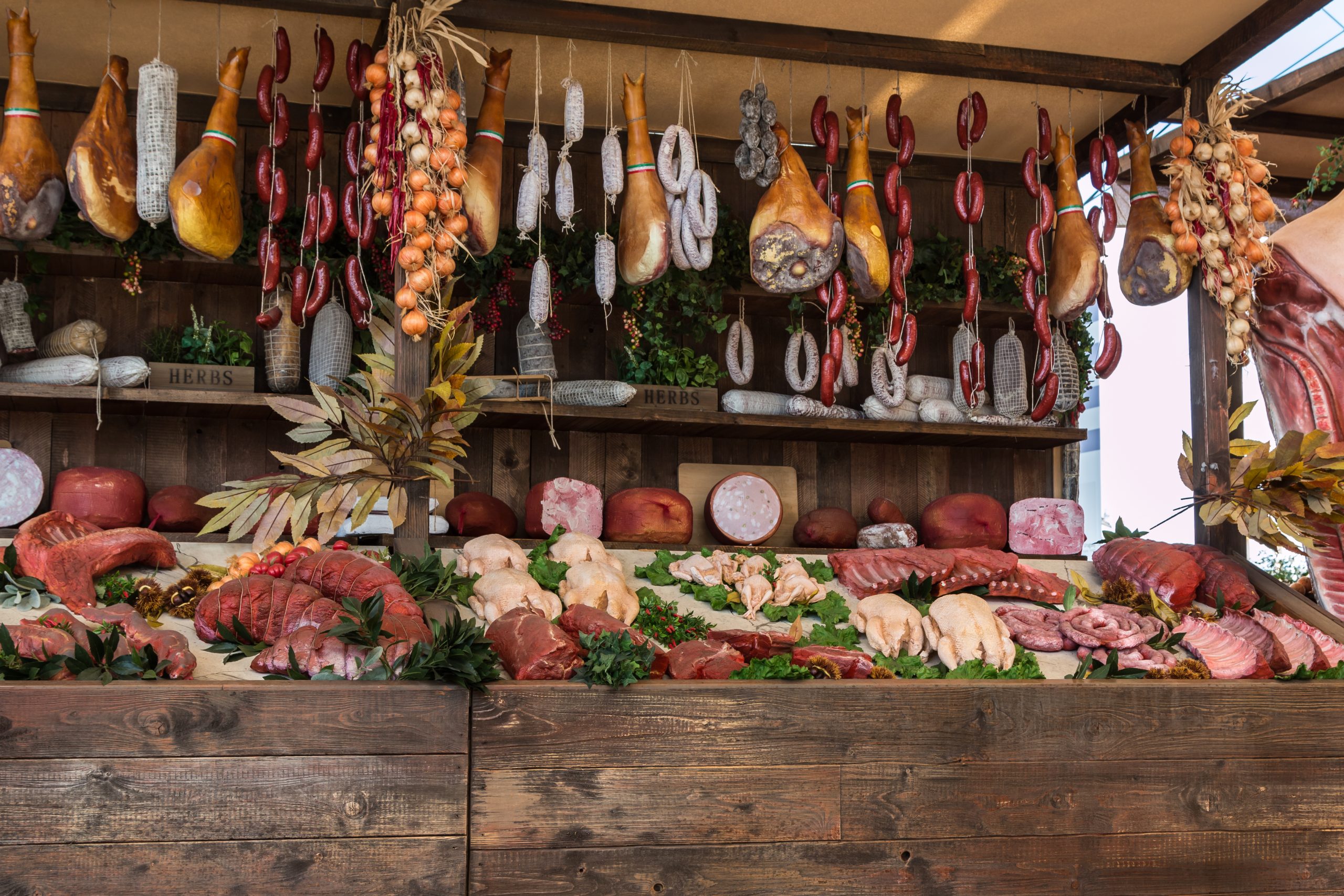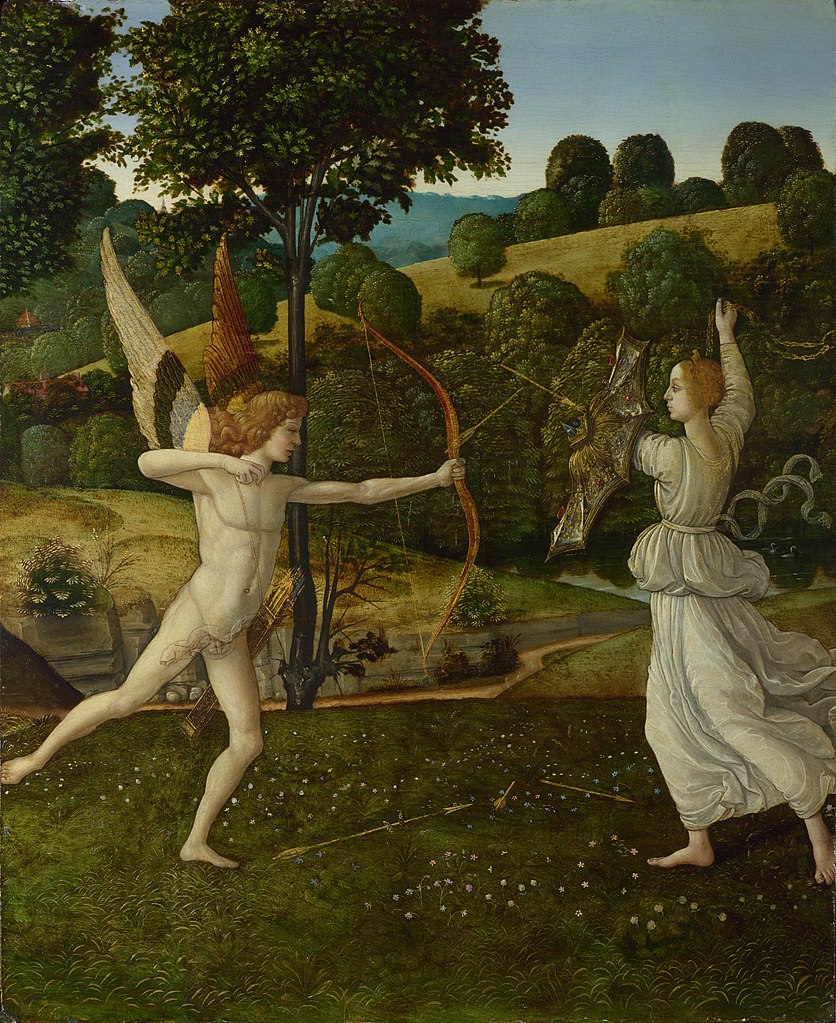To bring down the ruling classes, attack their spiritual weaknesses.
Farmtrad Life’s Lessons

Politics is downstream from agriculture.
Andrew Breitbart’s axiom has been repeated so often in right-wing commentary that it has become something of a cliché: politics is downstream of culture, and culture is downstream of religion. But an essential feature is missing from this exercise in hydro-political cartography. Near the source of the river, just across from the church, there is a farm.
It may seem outlandish to claim that the way we farm and the way we pray are comparable in their influence on culture and therefore on politics. But it only seems that way from the vantage point of deracinated modernity. Indeed, agriculture has always preceded and underpinned culture. It takes no intellectual leap of faith to trace our obesity and other health crises back to what we grow, and how we grow it. Likewise, if we are what we eat, then our national (and civilizational) identity crisis should come as no surprise: we no longer know who we are because we no longer know what we are eating, or by what means it has arrived on our plates.
The American people intuitively understand this. There are few issues that unite the citizenry’s opinion more than the sorry state of our agricultural system. Its nauseating treatment of animals, its disregard for the natural world upon which it is superimposed, its utter reliance on omnicidal toxicity and anti-human technology, its ruthless exploitation of farmers and other laborers, plus virtually all of the rest of its attributes, provoke universal disgust.
Any serious contemporary political project must, therefore, address this question of agriculture. This is convenient for those conservatives who believe fundamentally in real rootedness, in the given nature and reality of things, while the Left dreams of nebulous utopia. We should be eager to recover the ideal of the American farmer: surrounded by his family, striving to provide his community with healthful provender, preparing to bequeath a superior legacy of soil fertility to his children than he received. What else could more perfectly encapsulate our vision for the nation?
One of the deep divides arising from the post-Trump Realignment is a relatively simple one: those who believe that biology represents a real and valid constraint versus those who do not. From this standpoint it is clear that those who peddle the genetic modification of crops and those who peddle the surgical modification of children’s sex organs (under the guise of transgenderism) are birds of a feather. Those who insist it is necessary to annually nuke our country’s once-fertile soils with deadly agrochemicals are animated by the same spirit as those who insist that the segregation of womanhood and motherhood (read: the divorce of fertility from femininity) is the be-all, end-all of female empowerment. The endless monocultural homogeneity of the Midwest’s GMO corn and soy is the manifestation of the ideology that seeks to bulldoze and till under all distinction and uniqueness. You can almost hear their chant, rising from the fields: this ? is? what ?equity ? looks? like?!
It is up to us, the normal people, to retake the cultural territory that our political forbearers relinquished. Agriculture must be the first battleground, for the reasons laid out above: agriculture is ur-culture. Everything else proceeds from it as well as from religion. I am sure that the based policy wonks have a whole series of proposals for how to improve America’s agricultural situation. But I am not a policy wonk. I am a farmer. So what I have for you is not policy proposals, but real advice on how you, individually and as a member of your community, can take action on the side of the culturally sane.
1) Your Farmer is Your Earth Priest.
Whether you know him or not, your farmer is already a more important figure in your life than your doctor, lawyer, or stockbroker. He is closest in kind to a priest or a cleric. Except, instead of connecting you with the Heavens, he connects you with the Earth.
Long before you can make any improvement to “Our Food System” writ large, you must establish a relationship with your farmer. Be on a first-name basis with him. Save his cell phone number (or home phone if he has not yet made the transition to mobile). Get to know the way to his farm by heart. This person should be second only to direct blood relatives in importance to you. This is the person who grows the food that you make part of your body.
Here are some basics steps to finding a farmer, if you haven’t already:
- Look for one at your farmers’ market. Search on Google. Ask the weird people you know: hippies, Crossfit people, anti-vaxxers. They probably know the best farmers in your area.
- Subject them to the same interview process as any other prospective candidate. Figure out who they are as a person. Do this over the phone or in person at the market. Use this process to narrow down your search.
- If your suggestion of a visit is declined, then politely decline that farmer your patronage. Transparency is non-negotiable. That’s the whole point of all of this.
- Once at the farm, rely on your aesthetic instincts. Many “local, family farms” amount to little more than micro-feedlots. You will be able to tell by the ugly sight, smell, and sound of such places that their small scale does not make them an improvement on our current system. If, on the other hand, you find a farm with cows and sheep on lush grass, pigs crunching black walnuts in the woods, unrestrained poultry free to decimate the grubworm population, or anything approaching this vision, then you’re in the right place.
It is historically normal to know who grows your food. That our food appears to us as if by magic, boneless and skinless and shrink-wrapped under bright lights, is not normal. The first step in returning to normalcy is to develop a personal relationship with a farmer. Thousands of us are out here, waiting for you.
2) Achieve Culinary Literacy.
Once upon a time, the butchers of the British Isles would hang spring lambs in their windows. They disjointed the femurs from the pelvis, and artfully broke the ribs to create a magnificent, almost heart-shaped display, at the center of which hung the pluck: the liver, heart and lungs. This was all done in the absence of refrigeration.
What underwrote this tradition was the culinary literacy of the housewives of the day. They had received from their foremothers the knowledge by which to judge the quality of the organs as harbingers of health or unhealth, and to select the best available lamb for their families for the proper price. A housewife would buy the animal in its entirety, or perhaps broken down into subprimal quarters by her trusty butcher. She could do this because there was no part of the lamb that she did not know how to transform into delectable food. She would know how to perform this same procedure, mutatis mutandis, with a (to us) dazzling array of beasts, fish, plants, and mushrooms.
Regardless of whether you are a man or a woman, you must become like these housewives. As the irksome catchphrase runs: educate yourself. Only, instead of rotting your brain with the critical race theory of White Fragility, learn how to break down a whole chicken, make your own bacon, grow your own herb garden, and forage for mushrooms. All of this information is readily available on YouTube (Farmstead Meatsmith is my personal favorite channel, complete with a wonderful husband-and-wife podcast).
This is especially helpful if, after reading suggestion #1, you thought to yourself “I would love to get to know my farmer, but the prices are insane and I can’t afford them.” It is true that we often have to charge higher prices than what can be got at the grocery store. But the remedy to this dilemma has always been to become a master of the cheaper cuts, which are much more delicious anyway. (Yes, today’s obsession with “tenderness” is a neoliberal/postmodernist psyop. Retvrn to flavor.)
If you are interested in pursuing the lifestyle generally known as “trad,” then knowing how to prepare a scrumptious pig’s head, lamb’s heart, or chicken liver pâté is a requirement. I’m sorry if no one has informed you of this until now, but it is a fact. Bone broth is a relatively easy place to start on this adventure of the oddbits. I recommend that you roast your bones before simmering them, and throw in a few parsnips. The point is, your farmer probably has a freezer full of these sorts of items, and is likely willing to part with them nearly for free (I know I am).
3) Grow At Least One Thing Yourself.
It could be backyard chickens. It could be a pot of Italian parsley on your sunny city windowsill. It could be shiitake mushrooms in your closet or basement. I have come to truly believe that growing things—be they plants, fungi, or human families—is to the woke as Latin prayers are to demons: it makes them squeal all the way to exorcism. This is because the woke are ultimately identifiable by their envy of God’s creative capacity. They act as though their weird neo-language can restructure reality. It can’t, and that’s why they are so endlessly unhappy.
The antidote to this lunacy is to participate in communion with the heavenly order of the cosmos. After all, this is why God made us in the first place: to share in the divine love and joy made manifest in the beauty of Creation. To start a plant from seed, to grow it to maturity, to incorporate its fruits into a delicious meal shared with family and/or friends: this is the simplest way to begin this participatory journey.
4) Eschew Puritanism.
Do not become possessed by the delusion that you need to grow everything yourself, or that everything you eat must be grown locally. I enjoy Hungarian dessert wine as much as the next guy, and I don’t mind telling you. I’m all for continuing to import the finer things in life. Make each region known for whatever it excels at again. You know, they grow potatoes in Champagne, too. They just don’t export them.
5) Become a Farmer.
I am a young man with a supposedly “high-end” education. I did not need to farm. I still do not need to farm. But I do it anyway, and plan to continue to do so, because my object in life is not wealth or status, but meaning.
Our economy increasingly resembles a federal jobs program, outsourced to the marketplace. Few of the occupations available to us exist in response to some genuine demand. Legions of superfluous lawyers, traders, insurance agents, Human Resources apparatchiks, government bureaucrats, uncited academics, and so forth, spend their professional lives performing tasks that no one asked them to perform. If you are on the conveyor belt to such a destiny, I implore you: get off now. The security, the money: they aren’t worth the life spent in spiritual squalor.
And alright, you don’t have to become a farmer per se. But you must find a livelihood that is based in creating something people unambiguously want. Integrity farming is merely the safest bet: everyone wants good, clean food. But the possibilities within this category are infinite.
Behold, this is my counsel. There is much more to be done, but this is where I suggest we start. To those who have already begun: carry on. To the rest of you: Godspeed, and beat to quarters.
The American Mind presents a range of perspectives. Views are writers’ own and do not necessarily represent those of The Claremont Institute.
The American Mind is a publication of the Claremont Institute, a non-profit 501(c)(3) organization, dedicated to restoring the principles of the American Founding to their rightful, preeminent authority in our national life. Interested in supporting our work? Gifts to the Claremont Institute are tax-deductible.
How to cultivate masculinity in a culture that despises it.
Practical tips for finding what you really seek.
How and why to invest in land.
In the wilds of campus culture, nature reasserts itself.
The War on Terror is over, but the need is greater than ever for courageous American men.






